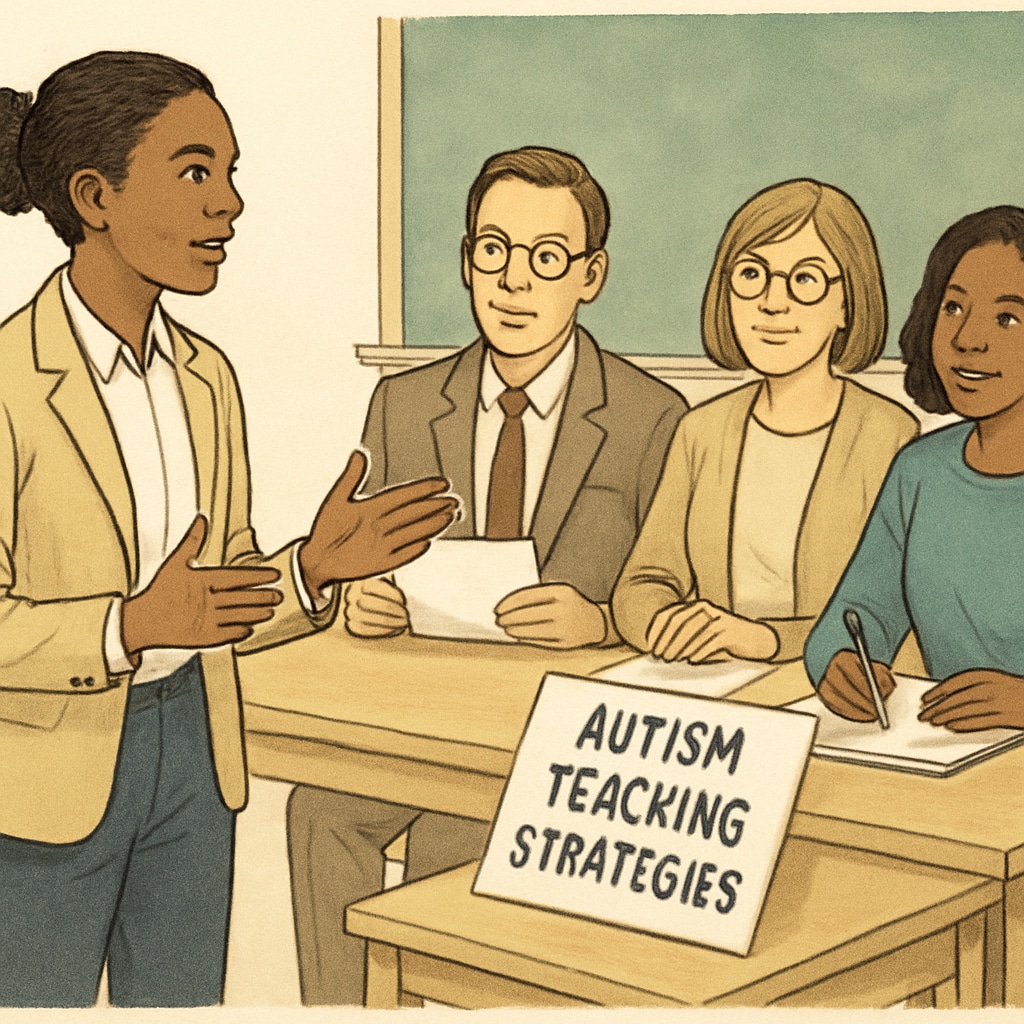Working as a teaching assistant in the field of special education, autism, and related areas can be both rewarding and challenging. For educators stepping into this role, it involves navigating the unique needs of children with autism spectrum disorder (ASD) while fostering their personal and academic growth. This article serves as a guide for those seeking to excel in this field, from interview preparation to managing the physical and emotional demands of the job.
Understanding the Role of an Autism Teaching Assistant
Autism teaching assistants play a crucial role in supporting children with ASD. Their responsibilities often include assisting with individualized education plans (IEPs), implementing behavioral strategies, and building rapport with students to create a safe and encouraging learning environment. Additionally, they collaborate closely with teachers, therapists, and families to ensure consistent progress.
While the job offers immense opportunities to make a difference in students’ lives, it also presents challenges such as navigating sensory sensitivities, managing disruptive behaviors, and addressing communication barriers. Understanding these aspects beforehand can prepare candidates for the complexities of the role.
- Provide one-on-one support tailored to each student’s needs.
- Help implement therapeutic strategies recommended by specialists.
- Facilitate communication using tools like PECS (Picture Exchange Communication System).
- Encourage social skills development through structured play and interactive activities.

Preparing for the Interview: Key Strategies
Interviewing for a role as an autism teaching assistant requires a blend of technical knowledge, empathy, and practical insight. Here are some strategies to consider:
- Research the School and Its Special Education Program: Familiarize yourself with the school’s approach to special education and the specific resources they offer for ASD students.
- Demonstrate Your Understanding of Autism: Share your knowledge of autism spectrum disorder, including common challenges and effective interventions.
- Highlight Relevant Experience: If you have prior experience in education, caregiving, or therapy, provide examples of how you adapted to individual needs.
- Prepare for Scenario-Based Questions: Practice responses to questions like, “How would you handle a student experiencing sensory overload?”
Additionally, expressing your passion for working with children and your commitment to continuous learning can leave a positive impression. Schools often value candidates who show genuine enthusiasm for the role.

Balancing Physical and Emotional Demands
Working in special education can be physically and emotionally demanding. Autism teaching assistants often need to maintain high levels of patience, empathy, and resilience while managing active classroom environments. To ensure long-term success in this career, it is essential to adopt strategies for self-care and professional growth.
Consider the following approaches:
- Develop Strong Time Management Skills: Balancing lesson plans, therapy schedules, and student needs requires effective time management.
- Practice Mindfulness and Stress Management: Techniques like meditation or journaling can help maintain emotional balance.
- Seek Support: Build connections with colleagues and participate in professional networks to share experiences and advice.
- Continue Education: Attend workshops, webinars, and courses to enhance your skills and stay updated on best practices in ASD education.
By prioritizing self-care and professional development, autism teaching assistants can achieve a sustainable balance between their responsibilities and personal well-being.
Readability guidance: The article uses short paragraphs and lists to enhance readability. It incorporates practical advice for interview preparation and career sustainability, while ensuring clarity with transitions such as “in addition,” “for example,” and “as a result.”


